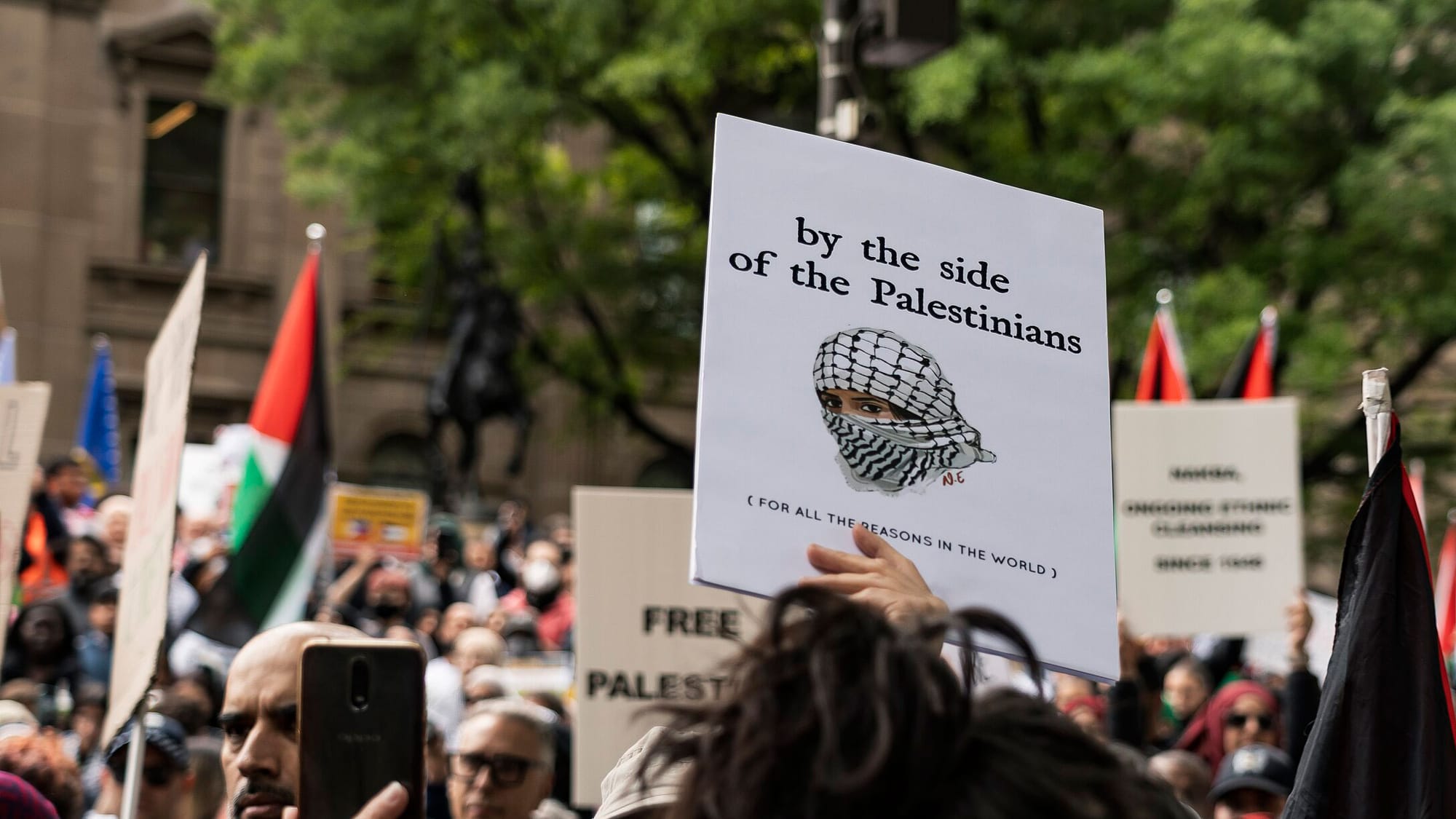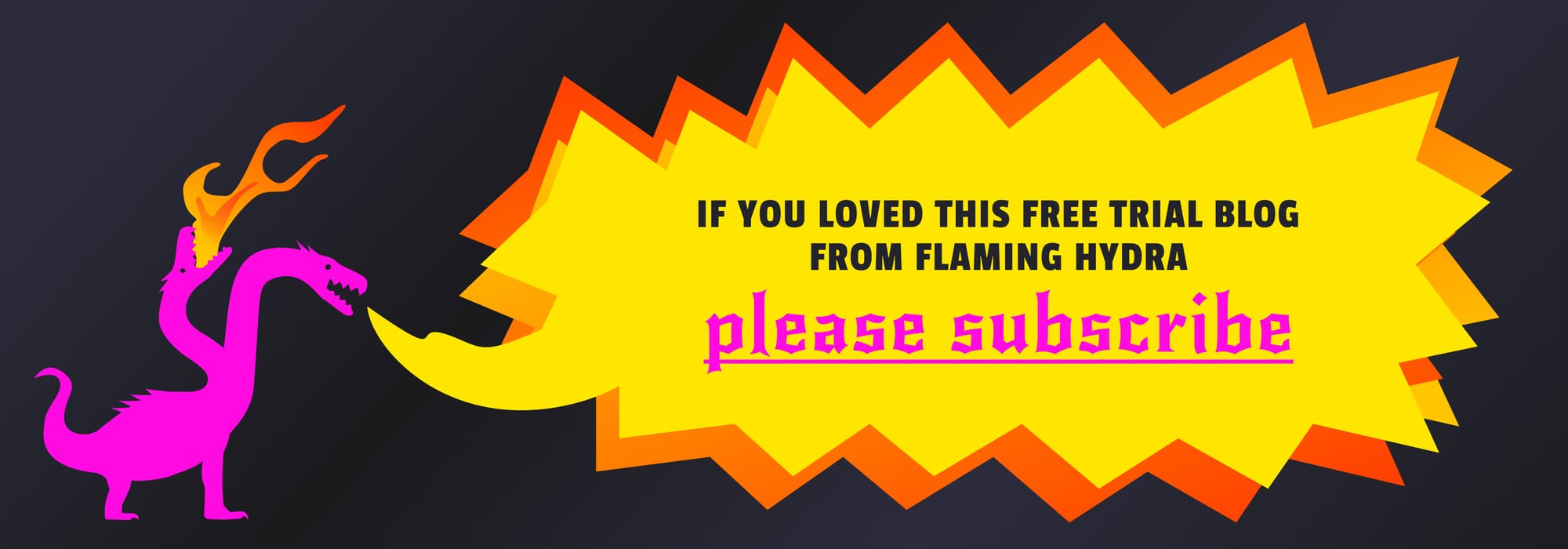How To Be Productive During A Genocide

by Arwa Mahdawi
Genocide is bad and all but it does have its silver linings. For example: the wholesale destruction of Gaza and the intense human suffering of two million people has really helped me cut down on my drinking.
I’ve always been an enthusiastic enjoyer of alcohol (I am half-British after all), but that went into overdrive after October 7. The intense anti-Palestinian rhetoric, the wild blood-lust, the bombs, the bombs, the bombs. I was working on a freelance brand strategy project at the time (this may be shocking to some readers, but writing doesn’t exactly pay the bills) and the ad agency’s Slack group was filled with people cheering on the bombing of Gaza. As someone who is half-Palestinian I felt like I couldn’t speak up without losing all future employment prospects with that agency again. I felt like I couldn’t ask the agency’s leadership to acknowledge that Palestinians are people too, that we were all suffering. So—a coward—I kept my mouth shut, my head down, and did my work. To numb everything, to quiet the screaming inside me, I started self-medicating with booze. An age-old remedy for despair.
Eventually it became clear that Israel wasn’t going to bomb Gaza for just a couple of weeks. Not even a couple of months. They were intent on completely destroying it—with America’s help. If I kept trying to drink the pain away it would kill me. So I all but gave up alcohol. Weirdly, it was much easier than I’d expected to break a two-decade long booze habit. The alcohol had stopped working—it didn’t even numb me anymore, only made me feel worse. I’d completely lost interest in the stuff. I’d lost interest in everything.
So, yeah. Drastically cutting down on alcohol. That’s been one plus of genocide.
Of course, it feels obscene to speak about my own pain when Gaza, as I write this, has officially been forced into famine. Here I am, sitting in my comfortable house, with a fridge full of food, and a toddler who has never woken up in terror from the sounds of bombs dropping. It feels indecent to talk about how hollowed out I feel.
Everything feels indecent. Writing emails, walking the dog, watching spring flowers bloom, buying groceries, living a normal life. It feels sickening to be doing all that while kids in Gaza pick up bloody pieces of their dead siblings from the rubble. As entire bloodlines are wiped out. As America ships an endless supply of bombs so Israel can enact what the US ambassador has described as a “final solution” to that pesky Palestinian problem.
But people all over the world are suffering! This is one of the pro-Israel crowd’s favourite talking points. Why are you so obsessed with Palestine? Setting aside the fact that I’m of Palestinian heritage, what makes the suffering in Gaza so unbearable is that I’m complicit in it. My US taxpayer money is helping to buy those bombs. My representatives (I am in the unfortunate position of having John Fetterman as a senator), are actively cheering this on. Indeed, Fetterman seems to spend more time worrying about Israel than he spends thinking about all the problems in Philadelphia. There is no other conflict in the world right now where my elected representatives seem so thrilled by the death count. There is no other conflict where simply speaking up in horror can cost you your job: can have you branded as some sort of extremist.
I am wracked with survivor’s guilt. I genuinely don’t know how to function right now. Nobody in the Palestinian diaspora does. “In the past five months I have not been able to think clearly. I start tasks and forget to finish them,” Zahira Jansen, a half-Palestinian recently wrote in the FT. “I am always tired, always sad...I have lost interest in work and in talking to other people."
For a while I couldn’t write; every time I tried to type something I burst into tears. It all felt so futile. I took a long break from my column at the Guardian—how could I write a lighthearted column when my heart was so heavy?—and threw myself into the brand project I was working on. I happily worked weekends because the work was abstract and distracting. I didn’t need to look at the news to write brand positioning statements the way I needed to keep up with the news to write my Guardian column. I had the luxury, the very selfish luxury, of keeping the horrors at arms length. I was very productive.
And then that project came to an end and I had to try and write again because there was a mortgage to pay and bills to deal with and childcare costs. I had to go on being productive because the fact that there was a genocide unfolding didn’t stop all the admin and responsibilities of my everyday life. I have tried to make myself feel better by thinking that I am doing all I can. I use the platform that I have to write about Palestine when editors allow it. I have signed petitions, I have written to politicians, I have gone on demonstrations, I have donated money. None of that has made any difference. Aaron Bushnell burned himself alive screaming Free Palestine and that didn’t make a difference.
Eventually this will all come to some sort of end. The bombing will stop—or at least it will slow down. The death count will stabilize. Jared Kushner will probably build his “very valuable” waterfront condos on the rubble of Palestinian land. Much of the world will move on. But for many of us, there is no moving on from the horrors of the last six months. I will never see the world the same again. I will never be the same again.

